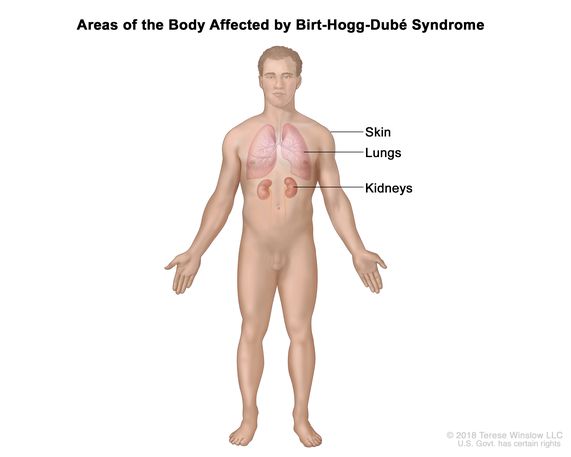Birt-Hogg-Dubé syndrome
(birt-hog-doo-BAY SIN-drome)
A rare, inherited disorder in which benign (not cancer) skin lesions called fibrofolliculomas form in the hair follicles on the face, neck, and chest. Patients with Birt-Hogg-Dubé syndrome have an increased risk of kidney cancer and benign kidney tumors. They may also have lung cysts and a condition called a pneumothorax, in which all or part of the lung collapses. The signs and symptoms of Birt-Hogg-Dubé syndrome usually do not appear until young adulthood. It is caused by a mutation (change) in a gene called FLCN.
